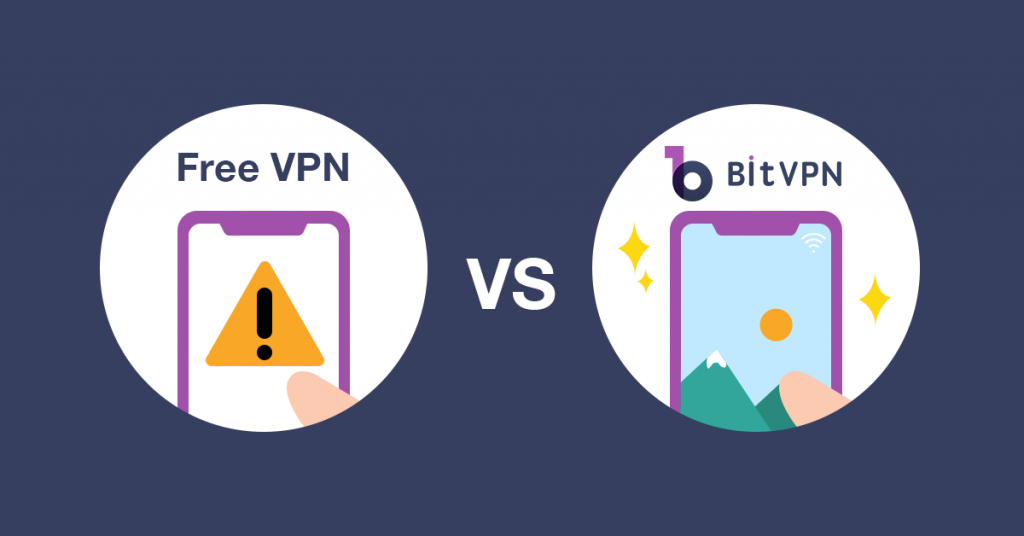As it goes, the internet is no more a safe place. You can be tracked, your digital footprints can be traced, your bank details can be stolen, and your web history can be monitored.
This is the reason that using a VPN service to secure internet connection has become an utmost necessity. For starters, a VPN (or virtual private network works) by encrypting your data with the latest encryption protocols and transfers your web traffic through a secure tunnel. This way, it ensures that government and third-parties cannot track your web activities. Additionally, it also keeps you protected from hackers and snoopy ISP providers.

But Here is the Catch: Are All VPNs Safe?
Although the basic purpose of using a VPN is to ensure your safety and security online, sadly, this is not the case. Most VPNs are privately owned and have their own set of rules and regulations on how they handle security.
Some VPN providers keep your logs, connection timestamps, IP addresses, and web history to share them with the government whenever needed. This is nothing but a big loophole in the entire scenario. This defeats the basic purpose of using a VPN.
Here are a few ways in which a free centralized VPN lets you down:
Ads, ads, and ads
Connect to a free VPN and you will find that they constantly bombard you with ads. Since they are free of cost, this is how they fuel their expenses.
Selling your bandwidth
Have you ever noticed that your connection speed drops drastically every time you connect to a free centralized VPN? This is because your VPN provider might be selling your bandwidth. Some of them even track your activity.
Limited data
Here is the final nail in the coffin. A lot of VPN providers do not provide you with unlimited data to access the internet securely. They come with a capped limit. What if this limit is crossed?
Well, your internet connection is not protected anymore. To overcome these challenges of centralized VPN, decentralized VPNs were introduced.
What is a Decentralized VPN?
While a centralized VPN owns and maintains its servers, a decentralized VPN has a network of separately owned users that safeguard the web data of users. A decentralized VPN is based on blockchain and uses each PC on a peer-to-peer network to communicate.
BitVPN is a decentralized VPN built over a public blockchain network and an open-communication TOP network. The TOP network is a decentralized cloud communication network built on a public blockchain. This decentralized structure ensures complete anonymity.
What makes decentralized VPNs like BitVPN safe is that they cannot be hacked. This is because hackers will need to hack every computer acting as a node to gain control over the system which is impossible. This decentralized structure makes BitVPN highly secure, private, and anonymous.
Since the VPN is decentralized by nature, the user data is handled by numerous independently-working servers across the world. This way, it is almost impossible for any hacker to exploit the system and exercise control over it.
A Decentralized VPN Provides Regular VPN Services
It is important to mention here that decentralized VPNs provide better safety and security when compared to centralized VPNs, and they provide you with all the services that you will ever expect from a VPN.
Want to protect your IP address from the government? Want to ensure that your online financial transactions are safe and secure? Want to circumvent geo-blocking? Well, whatever your needs are – a decentralized VPN takes care of all of them, but with added security.
You can stream Netflix, play games, torrent and share files, connect to a public Wi-Fi network securely, and do everything that you would like. BitVPN lets you do each of these tasks while ensuring that your security is not compromised at any point in time.
The Next Steps
While centralized VPNs aim to provide a bit of extra internet security, the truth is that they are not as secure as they should be. This is why using decentralized VPNs is the need of the hour. They deliver exactly what they are meant for – protection, anonymity, and security.
What are your views on this? Do let us know in the comments below.
You May Also Like:
- How to Tell if Someone is Spying on My Phone and How to Stop That
- Ask Your Employees These Questions to Easily Test Their Cybersecurity Awareness
- What’s Computer Hacking and How to Prevent It
- What is Ransomware? Everything You Should Know About Top 1 Possible Cyberattack in 2021
- Affected by Facebook Leak? How to Stay More Private on Social Media